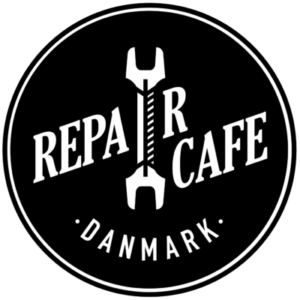We are happy to announce the release of our latest set of Open Repair Data. The Open Repair Alliance dataset now contains over 81,000 repair attempts logged at community repair events around the world.
This latest update contains data from events that were held up to the end of October 2022, and is published in the Open Repair Data Standard v0.3 format. Read on to find out more about the data and how it is used.
A global collection of 81,000 records of repair
The combined data of all data providers now contains 81,189 logged repair attempts – an increase of 19,094 (30.75%!) since the release of the last dataset. Partly the large increase is due to the addition of over 5,000 records of historic data from the network of repair cafes represented by Repair Cafe Danmark – yet even with this, we still see a significant increase of data across all partners.
New repair data from Denmark
While meeting at Fixfest in Brussels last year, we discussed with the team from Repair Café Denmark the possibility of incorporating historic data collected from repair cafes around Denmark into the Open Repair Alliance data.
The Repair Café Denmark team subsequently shared a spreadsheet of their data from 2019-2022, and after mapping it to the Open Repair Data Standard, we are happy to announce the inclusion of the data in this aggregation.
Repair Café Denmark told us: “we want to thank all of the Danish repair cafés who have gathered all this information for years. In Repair Café Denmark we are very happy to become more interconnected with the rest of the European network, so we can move forward and make a greater impact together. We brought so much good energy back with us from Fixfest in Brussels.”
The data comes from over 500 community repair groups in 25 countries. The repair data is best represented in those countries where the current data partners to the Open Repair Alliance are based. You can see the current list of members here.
As always, we would love to expand the number of countries in the data – let us know if you can share data from a country that is currently underrepresented!
Product categories and repairability
In the data we log the type of items seen, and the outcome of the repair attempts.
The most common items we see at repair events are Lamps (5,524 logged), Vacuum cleaners (5,437), Laptops (5,092), and Hi-Fi separates (5,015).
And in terms of repairability, the categories with the highest repair success rates are Lamps (70% fixed), Sewing machines (69%), Hair dryers (66%) and Paper shredders (62%).
Repair activity returning to pre-pandemic levels?
In terms of raw numbers of items logged per month, we can see that the volume is returning back to pre-pandemic levels. There can be a number of factors involved in this, however: for example, more groups logging data that ends up as part of our aggregated release, rather than a comparable number of groups logging repairs at the same rate as before the pandemic.
We’d like to explore this further, and would encourage others to investigate by downloading the data. Take a look at our Insights page for more analysis of the ORA data. Stay tuned for more updates, and get in touch if you would like to get involved.

NAPIER R WILLIAMS
Hi
I live in S.Ireland and I am a bit disappointed by the lack of interest shown on your maps. My background is in general DIY and IT systems and I would be prepared to work with others and for others on attempted repairs.
I am based in southern Co Wicklow and I am retired.
Neil Mather
Hi Napier – we know of one group in County Wicklow, in Greystones – https://greystonestidytowns.ie/greystones-repair-cafe/. However they haven’t run an event for a while. You could also check on https://repaircafe.org.
From what we understand in Ireland there has been something of a grey area for insuring the events, which has blocked the development of a movement there.
Belle
Excusez mais je ne comprend pas l’anglais. J’ai déjà bénéficié de Repair Café il y a qq années. J’en étais à 100% satisfaite.